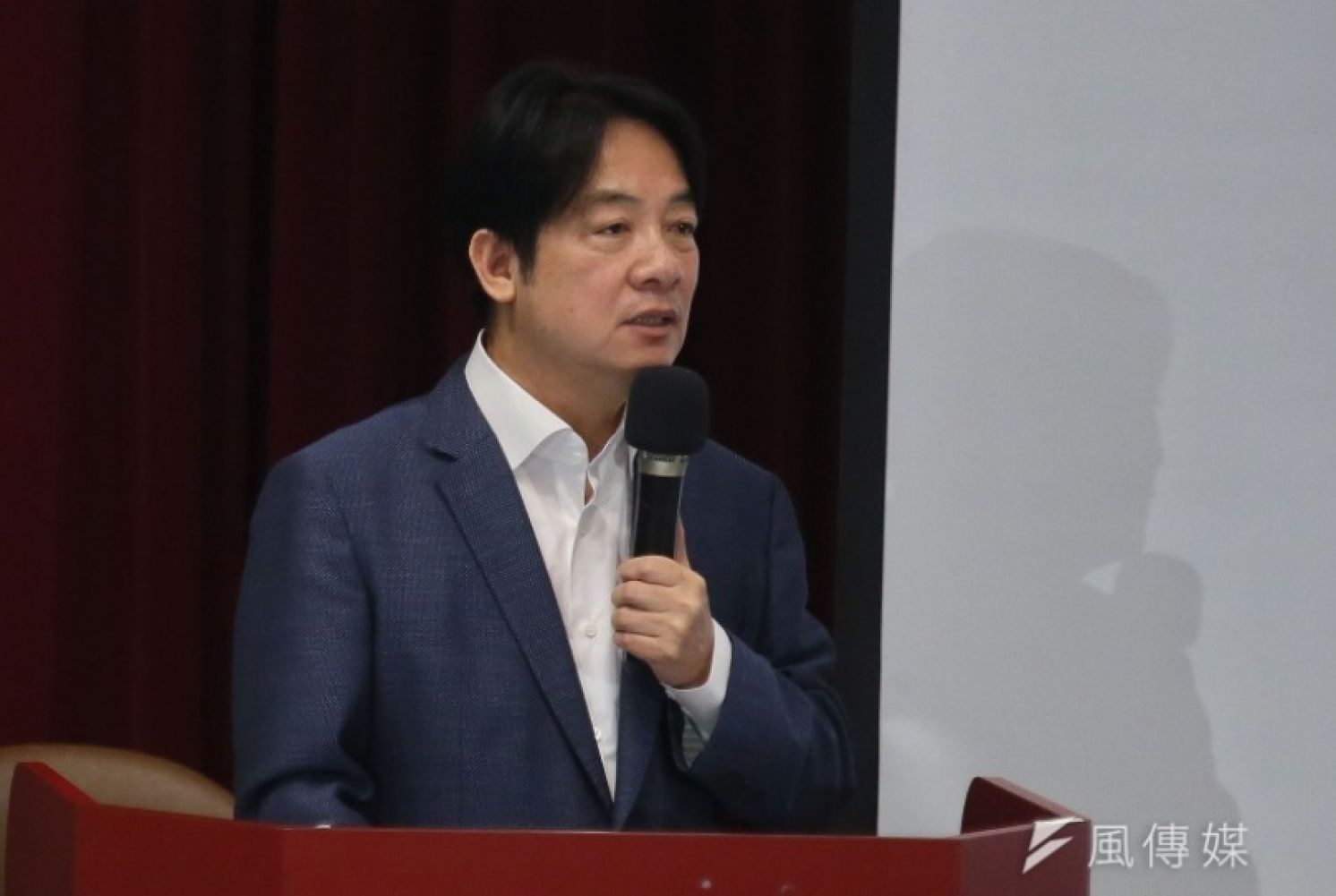
Hidden Worries Behind Lai's Wishful Thinking
United Daily News, May 7, 2023
In comparison to the presidential candidate nomination of the Kuomintang (KMT), which is currently embroiled in a stalemate between Mayor Hou Yu-ih of New Taipei and Terry Gou, founder of Hon Hai Precision Industry Company (Foxconn), the presidential candidate of the Democratic Progressive Party (DPP), William Lai, has already launched his campaign, with both online and physical activities in full swing. However, whether or not Lai’s cross-strait stance will be accepted by the Taiwanese electorate, and even by the United States and China, will be the key factor in winning the 2024 presidential election. Following internal discussions within Lai's camp, with a view to winning more support from centrist voters, there will be stronger emphases on the DPP's “maintain peace to protect Taiwan” and “anti-Communist but not anti-China” narratives in the future.
In the 2020 presidential election, the DPP used to slogan “resist China to protect Taiwan” and successfully re-elected President Tsai Ing-wen by garnering a record 8.17 million votes. The DPP also regained a majority in the Legislative Yuan, proving that the "resist China to defend Taiwan" narrative was effective. However, the tactic failed to deliver the same results in the 2022 local elections. In party briefings conducted by DPP Chairman Lai, many grassroots supporters questioned the "resist China and defend Taiwan" narrative. As a result, Lai shifted to "maintain peace to protect Taiwan” in order to continue the Tsai administration's policies.
Lai’s new slogan of "maintain peace to protect Taiwan" immediately ignited discussion. Subsequently, he emphasized that he would continue President Tsai's "Four Commitments" and reiterated that Taiwan is already a sovereign independent nation and does not need to declare independence separately upon his nomination for the 2024 presidential election last April. “The Republic of China and the People's Republic of China are not subordinate to one another,” he said. “The future of Taiwan is to be decided only by its 23 million people.” Lai stressed that he would promote the country's "Hope Project" through the three democratic slogans of "democratic unity," "democratic governance," and "democratic peace" to achieve the goals of "Democracy, Prosperity, and Peace."
According to some within the DPP inner circle, although Lai’s image as a “pragmatic Taiwan independence politician” appeals to fundamentalists among the green camp, earning the recognition of swing voters is crucial in the coming presidential election. Recently, Lai and his cross-strait and campaign strategy schemers have reached the conclusion that he must shed the "Taiwan independence" label and focus on the "maintain peace to protect Taiwan" and "anti-Communist but not anti-China” rhetoric. The DPP's core staff also support the strategy, as they believe it is more in line with Lai's slogan of "democracy, peace, and prosperity."
Does the modification from "resist China to protect Taiwan" to "maintain peace to protect Taiwan" and "not anti-Communist but anti-China" imply a change in DDP's cross-strait stance? The DPP official explained the stance is consistent, regardless of different wording. According to the official, facing Chinese military intimidation, we must resist China and protect Taiwan. In peacetime, we must strive to negotiate peacefully, avoid provocation, uphold our position, do our utmost to maintain regional peace, and create prosperity together.
"Anti-Communist but not anti-China” is not a new concept created for the 2024 elections, a green camp insider said. When Lai and Tsai competed in the DPP’s presidential primary in 2019, they publicly stated that the DPP administration is "anti-Communist, not anti-China." Thus, simplifying President Tsai's stance as pro-American and anti-China” may miss the full picture of President Tsai’s foreign policy.
During a party meeting, Lai also mentioned that "resistance" referred to resistance against aggression, rather than confrontation with China. Insiders in the DPP also said that "anti-Communist” rather than “anti-China” would not only signify a more accurate appeal to voters but also reduce the space for opposition parties to criticize the DPP for being too confrontational.
"Democracy, peace, and prosperity" and the "Four Commitments" comprise the foundation of Lai’s cross-strait policies, according to DPP officials. Following President Tsai’s use of "the Republic of China (Taiwan)” as the greatest common denominator term for the Taiwanese people, Lai advances the cross-strait discourse to “maintain peace to protect Taiwan,” which is in line with his "pragmatic” approach.
DPP legislator Kuo Kuo-wen, a disciple of Lai, said anti-Communist but not anti-China has always been the DPP's longstanding position. The administration of President Chen Shui-bian donated NT$2 billion (about US$61.5 million) in aid to victims affected by a major earthquake that struck Sichuan Province in 2008 to show care for those in the mainland, Legislative Kuo further stated. He emphasized that the slogan “resist China to protect Taiwan" in the past was directed at the Chinese Communist Party, not China as a whole. Lai's current slogans are clearer and avoid misinterpretation, fully demonstrating the DPP's consistent stance of being "anti-Communist but not anti-China.”
Although Lai’s calculated cross-strait stance is gradually moving away from "Taiwan independence" towards the center, there are still hidden worries. A DPP legislator privately expressed that Lai received support from the die-hard factions in the 2019 DPP presidential primary due to his "pro-Independence" stance. Whether removing the "anti-China" and "Taiwan independence" labels will cause a backlash or not remains to be seen.